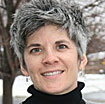Commentary on Psalm 148
In a “Preaching from Psalms” class I taught in 2013, we read/sang/meditated our way through the Psalter.1
Encountering Psalm 148 through the ancient method of lectio divina brought forth a number of insights. One student from Burma reminded us of the potential for harmonious co-existence of all things. Another student was struck by the power of God’s voice. Yet another student expressed discomfort over the Psalm’s reminder that she was worrying about so many things instead of praising God.
As I read through the Psalm I noticed the number of times I said, “Praise!” After three readings, it was nearly 39 times. “Praise him!” “Praise the Lord!” “Praise the name of the Lord!” Since the practice of lectio divina encourages participants not to judge what comes to mind, I’ll risk sharing with you what came to my mind. I was imagining that silly arcade game, Whack-a-Mole. You know the one where the moles pop up randomly and the player tries to whack them back into their holes.
It’s not the latter (whacking the moles back into their holes) that led to the association (especially since the Psalmist very well could have had moles in mind when crafting vs. 10). Rather, it’s the “randomly popping up” part. Instead of moles, the repetition in fast succession of “Praise” in the Psalm was a reminder of the abundant and random nature of reasons to praise the Lord that arise in any given day.
I wake up. Praise the Lord! I have food to eat. Praise him! I have meaningful work to do! Praise the name of the Lord! I encounter people who know my name and care for me. Praise him! Praise him! I breathe in the crisp, clean air and note the gorgeous magnolia tree attempting to bloom as I walk to work. Praise the Lord from the Earth! There are all these reasons to praise the Lord and I have not even been awake for two hours.
Later in the day, it occurred to me that there may very well be days when I inadvertently whack these abundant and seemingly random invitations to praise out of my sensory purview. The student’s statement indicating the Psalms potential to convict began to make sense.
Indeed, this Psalm is an invitation to praise and not necessarily a description of the way things are. As it offers a new thing with its hopeful, forward-leaning inertia, it hopes to move beyond an invitation to praise and into praise itself. While reading it aloud or, better yet, singing it full voice, we are joining the heights, the moon, the sea monsters, and the cedars in praising the one who commanded us into being.
Walter Brueggemann’s work on Psalm genres can help us here. He has moved beyond the traditional (and varied) genres of the Psalms to suggest three “functions” of the Psalms: orientation, disorientation, and reorientation. This way of categorizing the Psalms converges a “contemporary pastoral agenda” with a more” historical exegetical interest.”2
At first glance, Psalm 148 appears to be a Psalm of orientation given the apparent “lack of tension,” “coherence of life,” “good order,” “celebration of the status quo,” and the “assurance that [all is] well grounded” and will continue in this way. Yes, the content suggests everything is aligned, or, as my student poetically stated, everything is in harmonious co-existence. The heavens and the earth are aligned with one another, the elements in the heavens and the earth are aligned with one another (people, animals, landscapes, heavenly beings, solar system), and, very importantly, the heavens and the earth are aligned with their creator.
In addition to content, the structure suggests good order. In between the invitation to praise the Lord that bookends the Psalm (A) are two sets of verses that mirror one another as they move from invitation to praise (B) to exhortation (C) to clarification of motive (D). The first set represents heavenly elements and the second represents earthly elements. It looks something like this:
A1 Praise the Lord!
B1 Invitation to praise (heavens)
C1 Jussive (Let them . . .)
D1 Motive (for . . .)
B2 Invitation to praise (earth)
C2 Jussive – (Let them . . .)
D2 Motive (for . . .)
A2 Praise the Lord!
Despite the alignment of the structure and content, this Psalm might be better understood as a Psalm of reorientation. Psalm 148 does not simply describe the way things are, but proclaims there has been a turn events that is a welcome reversal. While there are definite resonances with the language in Genesis, this is not simply going back to those edenic good ol’ days. Instead, Psalm 148 is a “new song sung at the appearance of a new reality, new creation, new harmony, new reliability.”3 Indeed, there is a new heaven and a new earth (Revelation 21).
Here the Psalm has the most homiletical potential in this season of Easter. Interestingly, we encounter this Psalm every year (A, B, and C) the first Sunday of Christmas. In year C, we also hear it during Easter. The newness expressed in this Psalm was unimaginable a few weeks back when we wept at the foot of the cross. Having been through the most profound disorientation we call Good Friday, we cannot look back, only forward where everything is made new (Revelation 21).
The student who mentioned the power of God’s voice reminded us that we take our lead from the creator who speaks all creation into creation. When we join in singing this hymn, we participate in bringing forth the new world; a new world we thought was not possible, one where all of heaven and earth not only notices, but joins in praising the Lord who is above heaven and earth. May it be so!
Notes:
1 Commentary first published on this site on April 28, 2013.
2 Walter Brueggemann, “The Psalms and the Life of Faith,” in Soundings in the Theology of Psalms: Perspectives and Methods in Contemporary Scholarship, ed. Rolf Jacobson (Minneapolis: Fortress, 2011), 3.
3 Brueggemann, 16.


May 19, 2019